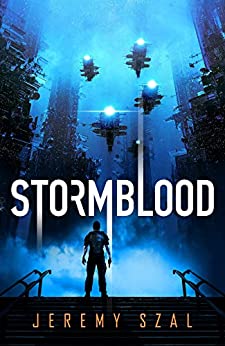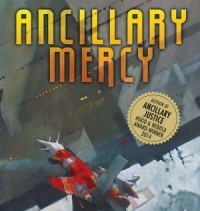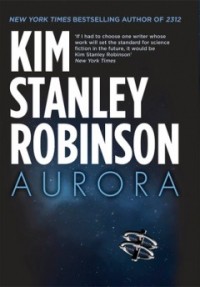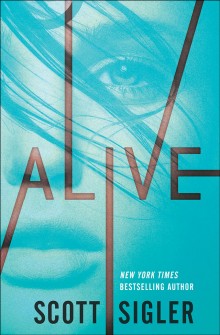There’s so much stuff getting published these days that it can be a challenge to identify good fiction from bad.
In fact, quite a few years ago when I was reading fantasy and science fiction in my own time, I remember even then, when we weren’t downloading it from Amazon, that the ratio of ‘good’ to ‘bad’ science fiction was woeful.
Partly that was my fault. I assumed that if a book was published, then it had to be good. After all, it costs so much time and money to publish it would be folly to publish something bad. If it’s cover was on display in a bookshop, then it must be among the best because of the real estate it takes up.
Now I know a few things I didn’t back then:
- Publishers buy manuscripts before they’re written, so they haven’t seen the end result before they’ve committed to paying for it any more than you have.
- Publishers aren’t that good at choosing great literature anyway. They get it right more often than the Amazon algorithm, but that’s because they’re harder to manipulate, not because they’ve got mystical abilities to choose good writers.
- The book that has pride of place in the bookshop has often paid to be there. At least online portals are required to indicate that the presence of a book at the top of your page is a paid promotion.
At least that explains some of the truly awful stuff I read when I started into the genre, and almost put me off for good.
Then I ran into a few people who course-corrected for me and sent me in a couple of new directions.
If you’re looking at science fiction and wondering why people read this stuff, then perhaps I can do the same for you. Here is my take on why you ought to give the genre a try, and how to get a good panoramic view of what it has to offer.
None of the rules of writing change in this genre
Good stories have well-rounded characters facing big challenges that they overcome in creative ways. They face challenges that alter the way they see the world and therefore change who they are. They are set in a world that is internally consistent with rules you instinctively, intuitively understand, even if the rules seem strange from the outside.
Just because you’re in the science fiction genre doesn’t mean a good book doesn’t need good characters, internal consistency and a dramatic premise. If you come across a bad science fiction book, remember this: it’s probably bad for the same reason some non-science fiction books are bad. It’s not bad because it’s science fiction.
The search for good books to read exists everywhere.
There are different subgenres, some of which may not be for you
If you read a book that’s narrowly-focused military science fiction, you’ll most likely read a lot about military battles, deployments of fleets and the characters of the marines or officers that are in command of these ships or part of their crew.
You might hate that.
If you hate that, you’ll probably also hate the Aubrey-Maturin series by Patrick O’Brien, because it’s exactly the same thing only set on earth in our not-too-distant past when we relied on sails and conscripted seamen to get large ships around. Nobody in their right mind (at least in my opinion) is going to claim that the Aubrey-Maturin series (all 19 books of it) is bad. That’s because it’s exceptional.
But it might not be for you.
Check what a book is about before you choose to read it. Science fiction is not what a book is about, any more than The Three Musketeers is about French history.
Ask people who know
While you may not know the people who know, it only really takes a couple of links to get to authors you like who will recommend (or whose readers will recommend) other things to read.
Of course, don’t get stuck in an echo chamber of similar stuff.
A good place to start for some recommendations that aren’t from me is the Science Fiction Roundup by the Guardian. Every so often they publish a list of the best new science fiction. I don’t agree with all of their recommendations, but a lot of the authors I enjoy reading today I discovered there.
There are some great authors that you should read at least once to see what’s available
Here’s a suggested list of science fiction authors that you might like to try, and the reason for each.
DISCLAIMER: This is by no means a list of the best, nor is it a comprehensive list of the good. It’s a suggested panorama of undeniably good authors whose work provides a safe and high-quality entry point into the genre. If I were to write this article again tomorrow, half the names and suggestions would change.
Isaac Asimov. Because it’s hard to pretend to have read any science fiction if you haven’t at least read Foundation. He’s the father of the debate around AI and its interaction with its human creators.
Larry Niven. Mainly because of Ringworld, which remains one of the great leaps of the imagination in the genre. Once you’ve visualised the Ringworld in your mind, it’s something you can’t unsee.
Iain M. Banks. An author whose worldbuilding is beyond compare. Iain M. Banks invented the post-scarcity society ‘The Culture’. If you can have anything you want, then what motivates individuals to act? Then he asked what would threaten such a powerful society and what challenges would it face, internally and externally. In answering that question he wrote some of the most satisfying science fiction out there. If you want to start where I started, read The Player of Games, but if you want to start with the book everyone talks about, read Consider Phlebas.
Alastair Reynolds is one of my favourite authors for hard science fiction. By this I mean science fiction with a strong emphasis towards not bending, breaking or ignoring the rules of physics. I think of his books as ‘crunchy’ and I enjoy them very much. Revelation Space is space opera with enough worldbuilding to keep you busy pondering it for weeks after you’ve finished reading it. Don’t stop there though, Reynolds is prolific and I’ve recently rediscovered him myself.
Alex Lamb is a more recent author. I really enjoyed his debut novel, Roboteer, published in 2015. I’m putting it here because it’s a very different vision than the other suggestions. The setting is conflict between Mars and Earth, and the technologies that make space travel possible. I also reviewed it when I read it, and you can read the review here.
Cixin Liu is a Chinese author, and his work has been widely translated into English. If you ever saw the film The Wandering Earth, then you should know that the story came from him. The work has a distinct flavour to it that comes from its foreign roots, which I consider a great asset. I suspect there is a lot of excellent science fiction being written in China and we in the west are deprived of access to most of it. I would suggest, just to pick something suitably different, The Three Body Problem.
Neal Stephenson is one of my favourite writers, and it’s extremely hard to pick what to suggest from his work because it’s all just so excellent. I’m going to cheat and suggest several novels because I can’t choose between them. The first, Seveneves, is a spectacular story spanning centuries that begins in the present day, with the destruction of the moon. The second, Anathem, tells the adventures of a monastic scholar on a world called Arbre, where knowledge is kept behind walls to protect if from the saecular world. Finally, The Diamond Age: Or, A Young Lady’s Illustrated Primer; yet another fast-paced world-building epic with a strong message about the social ladder and how it works.
Ann Leckie exploded onto the science fiction landscape in 2013 with Ancillary Justice. Original and exciting, sometimes poignant, Ancillary Justice is about a synthetic person that is an extension of a ship AI, and how they must adapt to no longer being part of a collective larger identity while dealing with the larger circumstances of how the ship she was a part of was destroyed.
There is a ton of excellent science fiction
Literally more than you could ever read.
I’ve named mostly big names here, because Asimov, Stephenson and Banks are giants in the genre, but that’s not to say you have to stay in that particular garden. I just think it’s a good set of signposts to start with.
I’ve not named any military science fiction, although there’s plenty of that (for some fun, pulpy military science fiction you could try Jack Campbell’s Lost Fleet series, starting with Dauntless. In a similar vein, you could try the excellent Old Man’s War by John Scalzi. Also by John Scalzi, if you’re looking for something a bit (very?) different, and you’ve some experience with the Star Trek TV series, you might enjoy Redshirts.
I could literally type all day and not run out of suggestions.
I was about to say I’ll stop there, but then it struck me that I haven’t mentioned Kim Stanley Robinson’s fantastic novel, 2312. So… guilt.
Feel free to add your recommendations below. I’m always keen to discover quality writing, and the genre isn’t as well signposted as people think it is.
Happy reading!












